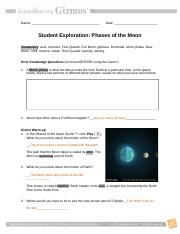

These insights, they argued, needed no external verification the mere fact that they flashed across the mind proved they were true. According to these preachers and writers, we could connect with divinity and understand those symbols - that is to say, transcend or rise above the material world - simply by accepting our own intuitions about God, nature, and experience. Taking direction from ancient Greek philosophy and European thinking, a small group of New England intellectuals embraced the idea that men and women did not need churches to connect with divinity and that nature, far from being without spiritual meaning, was, in fact, a realm of symbols that pointed to divine truths. To them it seemed that the church had taken its eyes off heaven and fixed them on the material world, which under the probings, measurements, and observations of science seemed less and less to offer assurance of divine presence in the world. In their view it lacked emotion and failed to foster that sense of connectedness to the divine which they sought in religion. We do not have the space here to explain Transcendentalism fully, but we can sketch some out its fundamental convictions, a bit of its historical context, and the way “Self-Reliance” relates to it.īy the 1830s many in New England, especially the young, felt that the religion they had inherited from their Puritan ancestors had become cold and impersonal. “Self-Reliance” asserts a central belief in that philosophy: truth lies in our spontaneous, involuntary intuitions. While they influence us today, Emerson’s ideas grew out of a specific time and place, which spawned a philosophical movement called Transcendentalism. He is America’s apostle of individualism, our champion of mind over matter, and he set forth the core of his thinking in his essay “Self-Reliance” (1841).
Illuminate answer key tv#
When you hear a self-help guru on TV tell people that if they change their way of thinking, they will change reality, you hear the voice of Emerson. When you hear people assert their individualism, perhaps in rejecting help from the government or anyone else, you hear the voice of Emerson. Ralph Waldo Emerson died in 1882, but he is still very much with us. What was going on at the time of its writing that might have influenced its composition?.Text analysis and close reading questions.Text analysis and close reading questions with answer key.

The student’s version, an interactive worksheet that can be e-mailed, contains all of the above except the responses to the close reading questions. The teacher’s guide includes a background note, the text analysis with responses to the close reading questions, access to the interactive exercises, and a follow-up assignment. This lesson is divided into two parts, both accessible below. The excerpt illustrates critic’s Louis Menand’s contention, cited in the background note, that Emerson’s essays, although generally taken as affirmations, are “deeply unconsoling.” The exercise is designed to raise questions about the implications of Emersonian self-reliance for one’s relations with others, including family, friends, and the broader society. It explores paragraph 7, the most well-developed in the essay and the only one that shows Emerson interacting with other people to any substantial degree. The second invites students to consider whether they would embrace Dr. Ralph, a nineteenth-century self-help guru, and asks students to interpret and paraphrase them. The first interactive exercise, well-suited for individual or small group work, presents some of Emerson’s more famous aphorisms as tweets from Dr.

The text analysis focuses on Emerson’s definition of individualism, his analysis of society, and the way he believes his version of individualism can transform - indeed, save - American society. This lesson offers a thorough exploration of the essay. “Self-Reliance” is central to understanding Emerson’s thought, but it can be difficult to teach because of its vocabulary and sentence structure.

(…Romantic beliefs in human perfectibility fostered the rise of voluntary organizations to promote religious and secular reforms…) ELA-Literacy.RI.11-12.1 (Cite textual evidence to support analysis of what the text says explicitly as well as drawing inferences.).ELA-Literacy.L.11-12.4 (Determine the meaning of unknown and multiple-meaning words and phrases.).


 0 kommentar(er)
0 kommentar(er)
